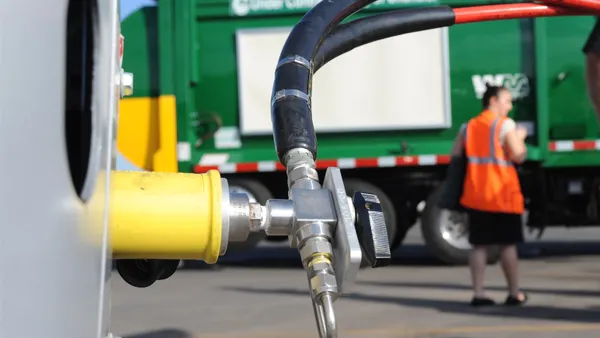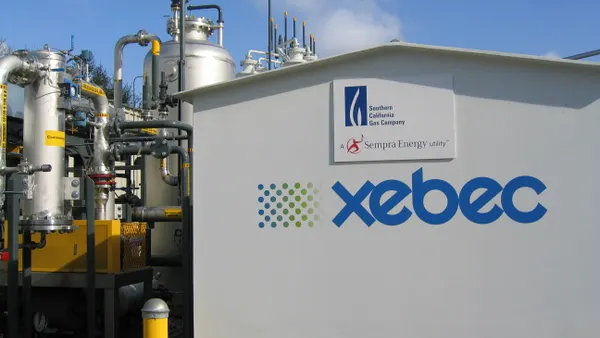Dive Brief:
- Wheelabrator is suing Baltimore County, Maryland for failing to deliver a contractually-mandated minimum of 215,000 annual tons of waste to the company's Baltimore incinerator, as first reported by the Baltimore Sun.
- According to the lawsuit, Baltimore County provided 65,813 fewer tons last year than stipulated by a 2011 contractual amendment. As of April 5, the county has reportedly sent 2,223 tons to the Wheelabrator facility and has announced plans to curtail its business before the contract term is up.
- "The damages the County will incur for failure to deliver the waste guaranteed to be delivered by it in the contract are more than $32 million," said Wheelabrator spokesperson Michelle Nadeau in a statement. "We are confident the court will find in our favor, unnecessarily costing Baltimore County taxpayers as much as $46 million in total contract savings and damages."
Dive Insight:
The complaint, which was filed last Thursday in the Baltimore County Circuit Court, seems likely to exacerbate the already-fraught relationship between Wheelabrator and local officials in the Baltimore area. Following sustained public backlash against Wheelabrator's local incinerator, the Baltimore City Council voted unanimously in February to approve emissions standards far outstripping the state's current requirements — a move widely regarded as an attempt to close the facility.
Opposition against the 30-plus-year-old incinerator has also found increased political support at the state level. Earlier this year, the Maryland Senate voted to remove WTE as a qualified source of renewable energy — a designation that allows the facility to reap over $1 million in subsidies each year from utility customers. That "green energy" label has since been restored in a final bill awaiting Gov. Larry Hogan's signature.
According to the filed complaint, Baltimore County's original 2009 contract, which lacked a minimum tonnage requirement, was amended in 2011 to stipulate that the county deliver a minimum of 215,000 tons of waste annually in exchange for waste disposal price reductions, a one-time payment of $2.15 million by Wheelabrator and other conditions.
"We regret that multiple attempts to resolve this issue through good-faith negotiations — including a cost reduction that would have saved Baltimore County more than $14 million over the remaining term of our contract — have been unsuccessful," Nadeau said in a statement. "We continue to believe it is in both parties' interest to resolve this matter amicably."
Wheelabrator has maintained that the city's new emissions requirements could effectively shut down the facility, and efforts to change the company's state renewable energy status aren't likely to taper off. Still, many industry stakeholders continue to broadcast optimism regarding the future of WTE in the U.S. — during a presentation at this year's NAWTEC conference, Macquarie's recent purchase of Wheelabrator was framed as a long-term play destined to weather present scrutiny.
"Wheelabrator has been around a long time — it's one of the leading energy platforms in the world," said Paul Mitchener, a managing director at Macquarie Infrastructure and Real Assets, at the event. "It has a mix of UK and U.S. energy assets, a proven and respectable environmental management team, and has invested a lot of money in upgrades."
Wheelabrator's strong regional presence was also highlighted as a deciding factor in Macquarie's investment.
"We like the Northeast disposal market — it's on the cusp of change," Mitchener declared, noting the region's high population density, consistent and diverse waste generation, and relative economic stability. "It's the most European market today. Prices have been rising for landfill disposal, but WTE plants are still receiving a lot of waste — and we don't think there's going to be any change in technology or regulation that's going to drive away a lot of the waste that's going to facilities we're investing in."
"We believe in WTE," he added. "We don't care that some of these assets are 30 years old. We see a great future in this business."










